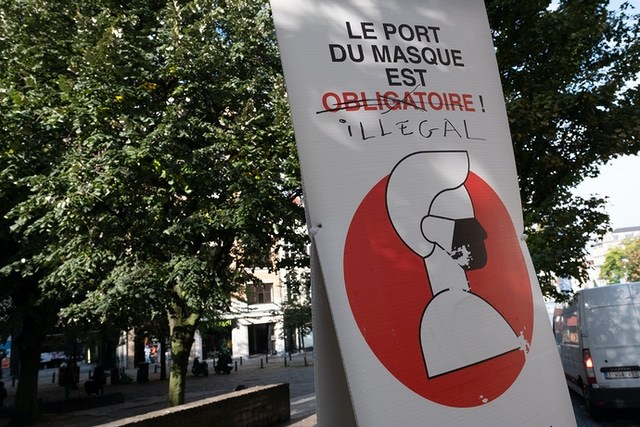Two Belgian human rights organisations have launched legal proceedings against the Belgian state, questioning the management of the coronavirus crisis without parliamentary debates, saying it is harmful for the fundamental rights of citizens.
The Flemish Human Rights League (Liga voor Mensenrechten) and its French-speaking counterpart (Ligue des droits humains) argued that approval of the coronavirus fighting measures by means of ministerial decrees alone is not good enough, because of the extent to which the measures interfere with basic freedoms.
"This concentration of power in the hands of the executive, without any parliamentary control, is no longer acceptable," Olivia Venet, president of Ligue des droits humains, stated in a press release.
Referring to the government's announcement to introduce a planned pandemic law before parliament, it said "the vague promises of a legal framework that would come into effect in June 2021, and which would only be intended to govern future epidemics and not this one, are far from sufficient".
Related News
- Brussels police don't fine maskless park goers
- Don't expect significant easing of coronavirus measures, health minister warns
Currently, the decisions made on measures are based on a 2007 law on civil protection, which the Council of State had ruled is adequate, however both organisations have argued that these decisions should not be “systematically withdrawn from consultation with the Council of State's Legislation Section on the pretext of urgency.”
More specifically, it said the consecutive ministerial decrees made by the Minister of the Interior can be questioned legally, especially as the measures heavily interfere with the rights and freedoms of citizens, and the punishments can even go as far as prison sentences.
Former home affairs minister and current professor of constitutional law at the University of Ghent, Johan Vande Lanotte, told De Morgen that the government should approach its planned pandemic law in a procedural way, involving parliament, the supposed legislature and elected representatives of the population.
“When it comes to fundamental rights, elected representatives of the people have to participate in decisions,” he said.
The case will be filed on Monday in summary proceedings before the French-speaking court of first instance in Brussels, the Ligue des droits humains said.
Lauren Walker
The Brussels Times

